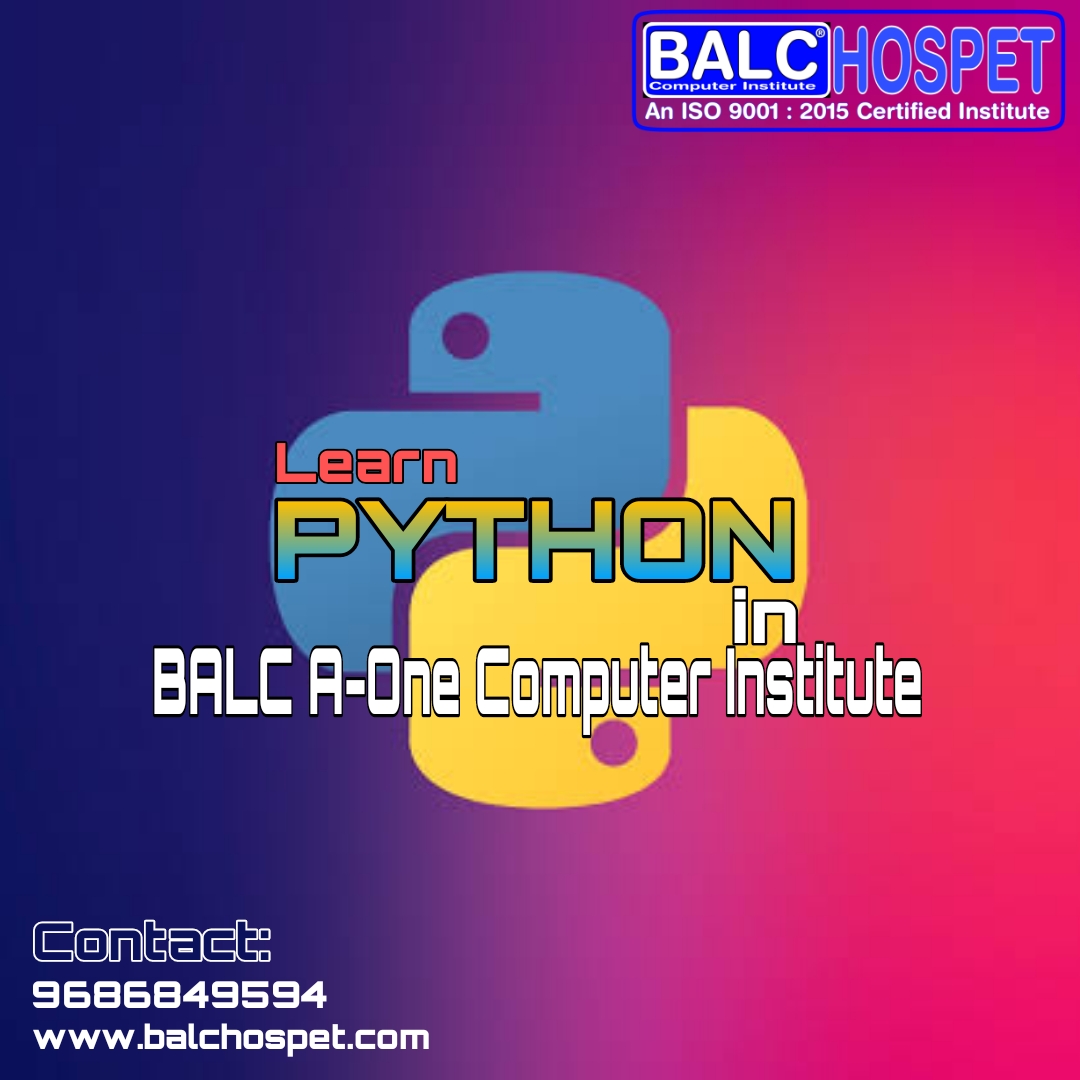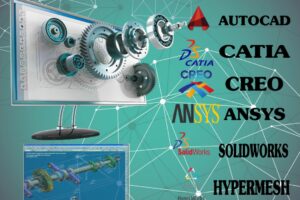
Python Programming Language

Vijayanagara Computer Institute provides complete python course. The course includes thorough coverage of Python syntax, built in data types and control constructs. The course takes a practical approach to creating and organizing Python programs using functions, packages, modules and classes as part of Python’s object-oriented paradigm. Not only because of these things. You can also like the practical skills.
Enhance your skill set and boost your intelligence through innovative, independent learning.

About Python:
In this course, you’ll learn the fundamentals of the Python programming language, along with programming best practices. We learn to represent and store data using Python data types and variables, and use conditionals and loops to control the flow of your programs. You’ll harness the power of complex data structures like lists, sets, dictionaries, and tuples to store collections of related data. You’ll define and document your own custom functions, write scripts, and handle errors. Lastly, you’ll learn to find and use modules in the Python Standard Library and other third-party libraries.
VCI’s Introduction to Computer Science Using Python is a popular self-paced online class designed to give newcomers a comprehensive overview of Py programming. It will take you from hello world to understanding topics such as Py syntax, data structures, data types, basic algorithms, and debugging Py code.

What is Python? Executive Summary
Python is an interpreted, object-oriented, high-level programming language with dynamic semantics. Its high level built in data structures, combined with dynamic typing and dynamic binding, make it very attractive for Rapid Application Development, as well as for use as a scripting or glue language to connect existing components together. Python is simple and easy to learn syntax emphasizes readability and therefore reduces the cost of program maintenance. Py supports modules and packages, which encourages program modularity and code reuse. The Py interpreter and the extensive standard library are available in source or binary form without charge for all major platforms, and can be freely distributed.
What is Data Science?
Data science is the domain of study that deals with vast volumes of data using modern tools and techniques to find unseen patterns, derive meaningful information, and make business decisions. Data science uses complex machine learning algorithms to build predictive models.
The data used for analysis can be from multiple sources and present in various formats.
Why Data Science?
Data science or data-driven science enables better decision making, predictive analysis, and pattern discovery. It lets you:
- Find the leading cause of a problem by asking the right questions
- Perform exploratory study on the data
- Model the data using various algorithms
- Communicate and visualize the results via graphs, dashboards, etc.




